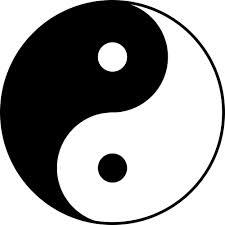I know little about my other aunt, except that she died in a hail of gunfire. I never met her, and I’ve only seen two or three pictures of the woman in my life. She was killed with her husband in 1981, when the civil war ravaging El Salvador was in full, game-on effect.
Aunt #2 was not targeted for death, as opposed to her brother (Uncle #1), and had tried her best to stay out the homicidal mess that had engulfed that country. But logic tells us that a war that killed tens of thousands of people could not have been confined to soldiers and guerrillas. My aunt was among those civilians who were simply in the wrong place at the wrong time.
The details of her murder are sparse, vague, even contradictory. News that comes out of El Salvador is often like this.
But the story I heard was that Aunt #2 and her husband were driving down the road near their village. The couple’s destination or errand remains unknown. They came upon a government roadblock that had simply not been there the day before. Whether they failed to slow down quickly enough, tried to run it for some unfathomable reason, or just made inappropriate eye contact has never been determined.
The soldiers opened fire, and the truck skidded off the road. The couple, shot multiple times, died in each other’s arms. When my family claimed the bodies, the soldiers admitted that they had made a mistake, and they offered a curt “lo siento” for gunning them down.
The murder left their only child, Cousin #7, a two-year-old orphan. He soon came to America, where my mother adopted him. In an ironic twist, he now lives in El Salvador (more on this in a future post).
And that’s basically all I know about Aunt #2. To be sure, I’ve heard bits and pieces about her over the years. I’ve heard that she was a bit of a wild child and a gifted fabulist. I also heard that she loved fire ants (of all things) and could sew well. But I could be wrong about all of these things.
My grandmother rarely speaks about either of her murdered children. They are not even ghosts to her. They are reference points to a long-ago life – one that has a tenuous connection to the old woman living in the cold American Midwest today. In my presence, my abuela has acknowledged her dead son and daughter only when pressed, and she refuses to clarify or elaborate or instigate any discussion of them.
Similarly, my mother can offer only scattered information. When Aunt #2 died, my mother had not seen her in years – such are the gaps incurred within immigrant families. So she can offer only scant insight into her little sister’s life.
As such, my conjectures about her personality or the strength of her character would be misplaced. And after my experience writing about Uncle #1, I’ve learned that even well-honed family stories can buckle and alter over the years. The facts get smudged when the principles are gone, and honest attempts to portray people accurately (which is what I’ve attempted) sometimes lead to mistakes or disputes.
In truth, for most of us, it is only a matter of time before we exist only as a mysterious name and some fleeting snapshots, long-distant ancestors reduced to a jumble of letters in a box on the family tree.
So I stand no chance at capturing the vitality of Aunt #2, about whom, as I’ve said, I know little. Instead, I will offer this most basic of eulogies: rest in peace.







